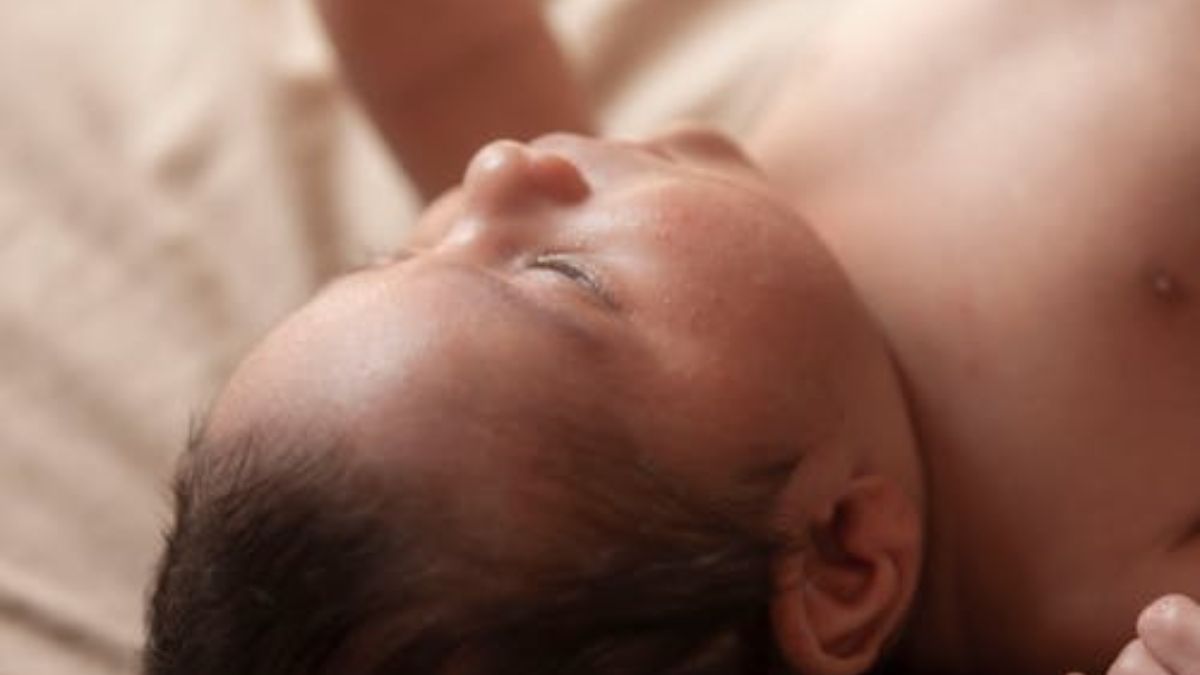In an extraordinary case from Gurugram, doctors have successfully removed not one but two foetuses growing inside the abdomen of a one-month-old baby girl.
The condition, called foetus in fetu, is extremely rare, seen in only about 1 in 5,00,000 live births worldwide. What makes this case even more unusual is that the child was carrying two parasitic twins, something that has been recorded only over 30 times globally.
The parents first became concerned when they noticed their baby’s swollen stomach, constant irritability, and problems with feeding. They rushed her to the hospital, where scans revealed something astonishing: two underdeveloped foetuses enclosed in a single sac inside her abdomen.
So how did doctors manage to save the child? What is the condition? Here’s a closer look at the rare medical case.
What is foetus in fetu?
Foetus in fetu is a very rare developmental anomaly that begins early in pregnancy, when a malformed foetus is absorbed by its twin.
In simple terms, it happens when one twin becomes enveloped by the other and ends up trapped inside the surviving baby’s body. Although the foetus is not alive, it can continue to grow by drawing nutrients from the host twin.
Unable to survive on its own, the “trapped” foetus gradually develops into a mass of malformed tissue. Sometimes, it may even show traces of bones or limbs, but it never becomes a viable baby.
In this case, the woman was pregnant with triplets and two of the foetuses began to grow inside the abdomen of the baby.
Doctors point out that these growths are not cancerous and do not behave like tumours. Once surgically removed, the chances of them coming back are extremely rare.
The condition has long intrigued medical experts. In fact, the first known case of foetus in fetu was described way back in 1808 by George William Young.
Also read: How a 'parasitic unborn twin' was found in a one-year-old girl's brain in China
How was the baby saved?
Performing surgery on a one-month-old baby comes with unique risks, and doctors had to proceed with great caution.
Before the operation could even take place, the child had to be stabilised. She was dehydrated and malnourished, so surgery was delayed until her condition improved. After two days of careful preparation, a team of around 15 specialists, including experts in paediatric surgery and anaesthesia, carried out the procedure to remove the parasitic twins.
According to doctors at Fortis Memorial Research Institute in Gurugram, the operation demanded extreme precision. Newborns are incredibly fragile, and their post-operative care needs to be meticulous.
The challenge was made even greater because the foetuses were attached to vital organs such as the liver, kidneys and intestines. Surgeons had to extract them with the utmost care to avoid damaging any organs or blood vessels.
“Throughout the surgery, the baby’s temperature was monitored. We also had to make sure that there wasn’t too much blood loss,” Dr Anand Sinha, the paediatric surgeon who led the operation, told the BBC.
He explained that if the malformed foetuses are not removed early, they tend to grow as the child grows. While they rarely become cancerous, they can still cause serious health problems later in life.
According to the BBC, the baby was discharged from hospital about a month ago and has been recovering well, with no complications so far, Dr Sinha added.
Also read: SC allows abortion of 24-week foetus, but why should women go to court in the first place?
Not the first case in India
While this case is extraordinary, it isn’t the first time doctors in India have come across such a rare condition. A few similar incidents have been reported in recent years.
In February, doctors in Maharashtra carried out a delicate surgery on a three-day-old baby, successfully removing two foetuses from the child’s abdomen. In 2024, a three-day-old baby in Kolkata underwent surgery to remove two malformed foetuses, but tragically, he died just a day later due to complications.
Speaking about diagnosis, Dr Sinha explained that ultrasound scans during pregnancy can often detect such abnormalities.
“These should be encouraged. Parents should be made aware of any symptoms because timely consults and treatment are key,” he said.
With input from agencies


)

)
)
)
)
)
)
)
)



